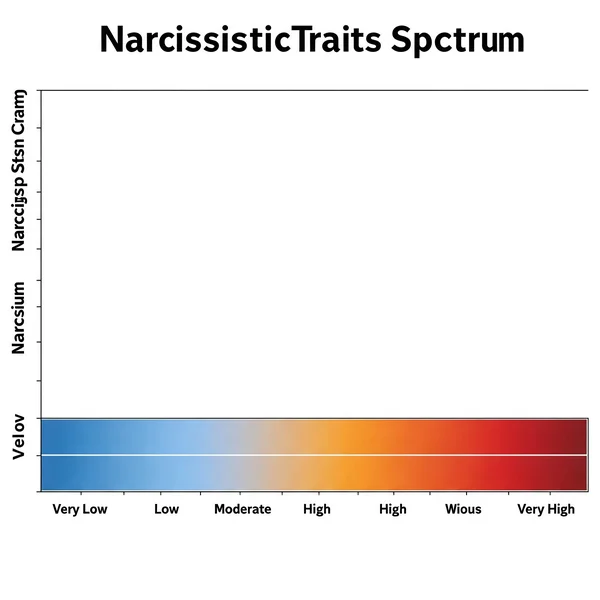Suis-je narcissique ? 10 signes et traits clés
May 5, 2025 | By Rowan Thorne
Comment savoir si je suis narcissique ? C’est une question qui traverse l’esprit de beaucoup de gens, surtout lorsqu’ils naviguent dans des relations complexes ou des moments d’intense concentration sur soi. Sur NarcissistTest.org, notre objectif est de fournir des informations claires pour vous aider à explorer de telles questions. Comprendre les tendances narcissiques potentielles est une étape cruciale vers la conscience de soi et des interactions plus saines. Cet article propose un cadre de réflexion personnelle en explorant 10 signes courants associés au narcissisme. N’oubliez pas que ce guide est destiné à des fins informatives et à une introspection personnelle, pas à l’autodiagnostic. Si vous recherchez une évaluation plus structurée après la lecture, envisagez d’utiliser notre test de narcissisme gratuit.
Pourquoi la réflexion personnelle sur les signes narcissiques potentiels est importante
Prendre le temps de la réflexion personnelle sur les traits de personnalité peut être incroyablement précieux. Reconnaître les schémas dans vos pensées, vos sentiments et vos comportements – en particulier ceux liés aux signes narcissiques potentiels – est fondamental pour le développement personnel. Cela peut éclairer la façon dont vous interagissez avec les autres, gérez les défis et vous percevez vous-même, vous permettant ainsi de favoriser des relations plus saines et d’améliorer votre bien-être général. Comprendre ces signes ne consiste pas à étiqueter, mais à gagner en clarté.

Comprendre brièvement les traits narcissiques par rapport au NPD
Il est essentiel de faire la distinction entre avoir des traits narcissiques et avoir un trouble de la personnalité narcissique (TPN). Le narcissisme existe sur un spectre ; de nombreuses personnes présentent certains traits occasionnellement sans répondre aux critères d’un trouble clinique. Le TPN, tel que défini par des ressources comme l’[American Psychiatric Association (APA)]([Authoritative External Source Link - e.g., APA page on NPD]), est un diagnostic formel de santé mentale caractérisé par un schéma omniprésent de grandiosité, de besoin d’admiration et de manque d’empathie, altérant considérablement le fonctionnement. Pour une étude plus approfondie de cette distinction, consultez notre prochain article : [Planned Article Title - Narcissistic Traits vs. NPD: Where is the Line?]. Cet article se concentre sur les traits ou signes courants qui pourraient inciter à la question : « Suis-je narcissique ? », destiné uniquement à la réflexion personnelle.
10 signes et traits narcissiques courants à considérer
Réfléchir à ces signes exige honnêteté et contexte. Aucun trait unique ne définit le narcissisme, mais un schéma cohérent de plusieurs pourrait justifier une exploration plus approfondie. Ces signes peuvent se manifester différemment, parfois s’alignant davantage sur des schémas grandioses, parfois sur des schémas plus vulnérables (en savoir plus dans [Planned Article Title - Grandiose vs. Vulnerable Narcissism]). Considérez ces signes narcissiques et traits narcissiques courants :
1. Un sentiment d’importance personnelle (complexe de supériorité) gonflé
- Description : Se sentir souvent fondamentalement supérieur aux autres ou croire que vous méritez une reconnaissance spéciale sans réalisations correspondantes.
- Exemples de croyances grandioses : Dominer constamment les conversations pour parler de succès personnels, en embellissant souvent les détails. Croire que vos problèmes ou vos idées sont plus profonds que ceux des autres.
- Minimiser les réalisations des autres : Minimiser ou rejeter les réalisations des autres pour maintenir un sentiment de supériorité.
2. Besoin constant d’admiration excessive
- Description : La validation et les éloges externes sont essentiels à votre estime de soi, allant au-delà de l’appréciation typique.
- Recherche de validation et d’éloges : Pêcher les compliments, se sentir démesurément contrarié ou en colère lorsque les éloges ne sont pas donnés.
- Sensibilité au manque d’attention : S’entourer de personnes principalement connues pour leur admiration ou se sentir vide/légèrement sans rétroaction positive constante.
3. Difficulté avec l’empathie (manque d’empathie)
-
Description : Il est difficile de reconnaître ou d’identifier les sentiments et les besoins des autres.
-
Comprendre les sentiments des autres : Être incapable ou peu disposé à se mettre à la place de quelqu’un d’autre.
-
Apparence froide ou détachée : Minimiser ou rejeter les problèmes des autres, interrompre fréquemment, avoir du mal à offrir un soutien émotionnel authentique.
![]()
4. Comportement interpersonnel exploiteur
- Description : Tendance à profiter des autres pour atteindre ses propres objectifs, considérant les relations de manière transactionnelle.
- Utiliser les autres pour un gain personnel : Emprunter de l’argent/des objets sans les rendre, manipuler émotionnellement pour obtenir ce que vous voulez.
- Manque de réciprocité dans les relations : Prendre plus que donner, nouer des amitiés uniquement basées sur des avantages potentiels.
5. Fort sentiment de droit
- Description : Posséder une attente déraisonnable d’un traitement particulièrement favorable ou d’une conformité automatique à vos attentes.
- Attendre un traitement spécial déraisonnable : Devenir impatient et en colère lorsqu’il ne reçoit pas d’attention ou de priorité immédiate.
- Croyance que les règles ne s’appliquent pas : Penser que les règles ou les normes sociales ne devraient pas vous contraindre comme elles le font pour les autres.
6. Hypersensibilité aux critiques
- Description : Réagir aux commentaires négatifs ou aux offenses perçues avec des sentiments intenses de rage, de honte ou de défense. La confiance diffère du narcissisme souvent dans la façon dont les critiques sont gérées (en savoir plus : [Planned Article Title - Narcissism or Just High Self-Esteem?]).
- Réagir avec colère ou honte : S’emporter violemment contre des critiques mineures, entretenir des rancunes à long terme.
- Incapacité à accepter les commentaires négatifs : Éviter les situations où des commentaires pourraient survenir ou devenir extrêmement sur la défensive.
7. Préoccupation pour les fantasmes de succès, de pouvoir ou de beauté
- Description : Se perdre fréquemment dans des fantasmes élaborés de succès illimité, de brillance, de pouvoir, de beauté ou d’amour idéal, souvent dépourvus de base réaliste.
- Visions idéalisées de soi et de l’avenir : Passer beaucoup de temps à imaginer des scénarios grandioses.
- Déconnexion de la réussite réaliste : Fixer des objectifs basés sur des fantasmes plutôt que sur des étapes pratiques.
8. Comportement arrogant ou hautain
- Description : Apparaître souvent comme vaniteux, vantard ou prétentieux dans les interactions.
- Attitude condescendante : Parler avec condescendance aux personnes perçues comme « inférieures ».
- Manifestation de mépris pour les autres : Montrer du dédain pour les opinions, les goûts ou les faiblesses perçues des autres.
9. Sentiments de jalousie (vers ou des autres)
- Description : Ressentir souvent une intense envie des autres ou croire que les autres vous envient.
- Jalousie du succès des autres : Difficulté à célébrer véritablement les réalisations des autres, ressentir de l’amertume.
- Croyance que les autres sont jaloux : Interpréter fréquemment des commentaires ou des situations neutres comme des signes d’envie des autres envers vous.
10. Tendance à la manipulation
- Description : Utiliser des tactiques comme les sentiments de culpabilité, le gaslighting ou le chantage émotionnel pour contrôler ou influencer les autres.
- Utiliser des tactiques comme le gaslighting ou les sentiments de culpabilité : Déformer les faits pour faire douter quelqu’un de sa réalité, faire sentir coupable quelqu’un de ne pas répondre aux attentes.
- Contrôler les actions ou les émotions des autres : Utiliser le silence ou d’autres méthodes pour punir ou exercer un contrôle.
Et si vous reconnaissez ces traits narcissiques chez vous ?
Reconnaître certains de ces traits narcissiques chez vous peut être inquiétant. Puis-je être narcissique sans le savoir ? Il est possible d’avoir des traits sans réaliser leur schéma ou leur impact. La clé est la fréquence, l’intensité et la combinaison de ces comportements, et le fait qu’ils causent des problèmes importants dans vos relations ou votre estime de soi (parfois appelés « souffrance ou déficience cliniquement significative » dans les contextes diagnostiques). L’honnêteté dans la réflexion personnelle est la première étape. Si plusieurs signes résonnent fortement et de manière persistante, il pourrait être utile d’explorer plus avant.

Passer le test de narcissisme
Bien que la réflexion personnelle sur ces signes soit utile, elle peut être subjective. Quels sont les signes d’un narcissique dans un cadre plus objectif ? Une évaluation structurée peut fournir des informations plus claires. Notre test de narcissisme est conçu pour offrir un moyen confidentiel et gratuit d’évaluer ces tendances, inspiré des concepts psychologiques établis souvent utilisés dans la recherche. Il fournit un score et une interprétation qui peuvent servir de point de données précieux dans votre cheminement de compréhension de soi.
Prêt pour un regard plus approfondi ? Passez notre test de narcissisme gratuit pour obtenir des informations personnalisées.
De la réflexion à l’action : comprendre vos traits narcissiques
Se demander « Suis-je narcissique ? » est un signe d’introspection. Comprendre les traits narcissiques potentiels grâce à la réflexion et à des outils comme notre évaluation du narcissisme ne vise pas le jugement, mais à acquérir une précieuse conscience de soi. Cette connaissance vous permet de faire des choix conscients concernant votre comportement et vos relations. Pour des conseils sur ce qu’il faut faire après l’évaluation, consultez [Planned Article Title - Beyond the Test: Next Steps…]. N’oubliez pas que ces informations sont éducatives et ne remplacent pas une évaluation professionnelle. Si vous avez des préoccupations persistantes concernant votre personnalité ou votre santé mentale, demander l’aide d’un professionnel qualifié (comme ceux énumérés sur des ressources telles que [Psychology Today’s Therapist Finder]([Authoritative External Source Link])) est toujours la meilleure ligne de conduite.

Quelles sont vos réflexions sur ces signes ? L’un d’eux a-t-il particulièrement résonné lors de votre réflexion personnelle ? Partagez vos réflexions (avec respect) dans les commentaires ci-dessous, ou explorez plus de ressources sur notre site.
Foire aux questions sur les signes narcissiques
Puis-je être narcissique sans le savoir ?
Oui, c’est tout à fait possible. Le manque de conscience de soi, ou le fait de justifier certains comportements comme normaux ou nécessaires, peuvent empêcher quelqu’un de reconnaître les schémas narcissiques chez lui. Une réflexion personnelle honnête et potentiellement des commentaires de sources fiables (utilisés avec prudence) peuvent aider à découvrir ces tendances.
Quelle est la différence entre une haute estime de soi et le narcissisme ?
Une saine estime de soi est généralement stable, basée sur une auto-évaluation réaliste et coexiste avec l’empathie. Le narcissisme implique souvent un sentiment de soi gonflé mais fragile, un fort besoin d’admiration, des difficultés à gérer les critiques et une empathie altérée. La vraie confiance n’exige généralement pas de rabaisser les autres. En savoir plus dans notre prochain article : [Planned Article Title - Narcissism or Just High Self-Esteem?].
La reconnaissance de ces signes suffit-elle pour un diagnostic ?
Absolument pas. Reconnaître ces signes narcissiques ou traits narcissiques n’est qu’un point de départ pour la conscience de soi ou la compréhension des autres. Un diagnostic formel de trouble de la personnalité narcissique (TPN) nécessite une évaluation complète par un professionnel qualifié de la santé mentale utilisant des critères diagnostiques spécifiques, tels que ceux définis dans le DSM-5 (Manuel diagnostique et statistique des troubles mentaux). Vous pouvez trouver plus d’informations sur les critères du TPN auprès de sources réputées comme la [Mayo Clinic]([Authoritative External Source Link - e.g., Mayo Clinic page on NPD]). Les tests et articles en ligne, y compris celui-ci et notre test en ligne gratuit, sont des outils éducatifs, pas des instruments diagnostiques.